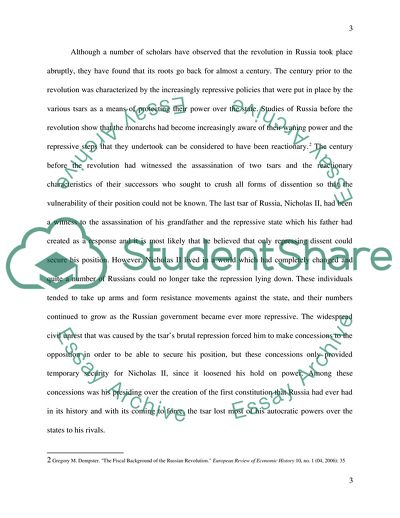Cite this document
(The Russian Revolution: the Democratic and Socialist Movements Research Paper Example | Topics and Well Written Essays - 2000 words, n.d.)
The Russian Revolution: the Democratic and Socialist Movements Research Paper Example | Topics and Well Written Essays - 2000 words. https://studentshare.org/history/1817980-the-russain-revolution
The Russian Revolution: the Democratic and Socialist Movements Research Paper Example | Topics and Well Written Essays - 2000 words. https://studentshare.org/history/1817980-the-russain-revolution
(The Russian Revolution: The Democratic and Socialist Movements Research Paper Example | Topics and Well Written Essays - 2000 Words)
The Russian Revolution: The Democratic and Socialist Movements Research Paper Example | Topics and Well Written Essays - 2000 Words. https://studentshare.org/history/1817980-the-russain-revolution.
The Russian Revolution: The Democratic and Socialist Movements Research Paper Example | Topics and Well Written Essays - 2000 Words. https://studentshare.org/history/1817980-the-russain-revolution.
“The Russian Revolution: The Democratic and Socialist Movements Research Paper Example | Topics and Well Written Essays - 2000 Words”. https://studentshare.org/history/1817980-the-russain-revolution.


